At the 15th Apollo CV Awards 2024, key stakeholders of the CV value chain deliberated on ways to enhance customer value profitably. Ashish Bhatia delves into the deep insights.
The panel began with moderator VG Ramakrishnan, Managing Partner, Avanteum Advisors LLP probing the transporter challenges. Jehaan Kotwal, Founder of HumSafer and Director of JFK Transporters Pvt. Ltd. shed light on the critical challenges faced by transporters in today’s market. Kotwal emphasised the pressing issue of driver shortage, which significantly impacts profitability. Despite advancements in truck technology, many drivers struggle to adapt to new features, such as those found in BSVI engines. This highlights the urgent need for comprehensive driver training programs to maximise efficiency and ensure seamless operations. Additionally, he underscored the importance of minimising Turn Around Time (TAT) to enhance fleet productivity. He set the context by highlighting maintenance issues, particularly prevalent in newer generation trucks like BSVI models, contributing to increased downtime, and posing a considerable obstacle to profitability. Despite these challenges, he acknowledged positive developments in road infrastructure, facilitated by government initiatives, which in his opinion have bolstered operational efficiency for transporters.
OEM strategies for profitability
Girish Wagh, Executive Director of Tata Motors Ltd., responded to Jehaan by giving a backdrop. Representing the OEM perspective, he touched upon valuable insights into the strategies employed to enhance profitability and deliver value to the transport industry. Before delving into specific initiatives, Wagh contextualised the industry’s journey, highlighting significant disruptions such as increased axle loads, the onset of the COVID-19 pandemic, and the transition to BSVI standards. Despite these challenges, he commended the resilience of both industry players and transporters in navigating through turbulent times. He pointed out a notable increase in demand for road transportation services, indicating a remarkable recovery post-crisis. He attributed this recovery partly to the adoption of higher tonnage vehicles, such as the shift from 37-tonne to 48-tonne trucks, leading to revenue growth for transporters. Moreover, Wagh emphasised Tata Motors’ proactive approach towards BSVI compliance, focusing not only on regulatory requirements but also on opportunities to optimise Total Cost of Ownership (TCO) for customers. This customer-centric strategy underscores the OEM’s commitment to delivering sustainable profitability and value across the supply chain.
Enhancing Fuel Efficiency: A crucial lever for profitability
The pivotal role of fuel efficiency in driving profitability for transporters, with fuel costs accounting for a significant portion of operational expenses was cited by Wagh. He highlighted that even a marginal improvement in fuel efficiency can have a substantial impact on the bottom line. Therefore, OEMs have prioritised initiatives aimed at enhancing fuel efficiency across their vehicle fleets. This includes not only technological advancements but also operational efficiencies to maximise fuel utilisation. He acknowledged the collective efforts of the industry in this regard, emphasising the importance of sustainable fuel management practices.
Addressing the driver shortage challenge
Echoing Kotwal’s concerns regarding the critical issue of driver shortage, which continues to plague the industry globally, Wagh recognised the multifaceted nature of this challenge. He emphasised the need for holistic interventions to attract and retain talent in the commercial vehicle sector. To this end, Tata Motors has implemented a comprehensive driver welfare policy, aimed at enhancing the dignity and well-being of drivers, he informed. This includes provisions for life and health insurance, educational support for their families, and financial planning assistance. Moreover, he discussed efforts to decentralise driver training initiatives, involving MSMEs to scale up training programmes and address the shortage of skilled drivers effectively.
Leveraging technology: Light and Medium Duty Trucks
Vishal Mathur, Sr. Vice President, Sales & Marketing LMD Trucks, VE Commercial Vehicles Ltd. shed light on the remarkable advancements witnessed in the Light and Medium-Duty (LMD) truck segment, where modernisation efforts have kept pace with the broader commercial vehicle industry. He highlighted the increasing adoption of technology-driven solutions by LMD customers, such as telematics and connected services, to enhance operational efficiency and fleet management. Despite facing challenges such as language barriers and technological constraints, LMD operators have embraced these innovations, driving productivity and profitability in the segment. Additionally, Mathur discussed the significance of TCO considerations for LMD operators, with fuel efficiency, uptime, and maintenance being key factors contributing to profitability.
Continuous product innovation for enhanced customer experience
Naveen Chopra – Head, PD and CDMM, Mahindra Truck And Bus Division emphasised the importance of continuous product innovation in delivering an enhanced customer experience and driving profitability from the inception stage. He highlighted the evolution of commercial vehicle technology, focusing on improvements in fuel efficiency, service intervals, and overall product quality. By prioritising customer experience standards, OEMs aim to not only meet but exceed customer expectations, thereby enhancing brand loyalty and driving long-term profitability. He underscored the industry’s commitment to continuous improvement, ensuring that commercial vehicles remain at the forefront of technological innovation and customer satisfaction.
In a candid assessment of the commercial vehicle industry, acknowledging the need to shift focus from traditional product attributes to customer experience. He emphasised the importance of internalising customer experience as a primary goal in product development, highlighting that designing products with the customer’s experience in mind is crucial for long-term success. Chopra advocated for a paradigm shift in mind set across the industry, urging stakeholders to embrace customer-centricity and prioritise delivering value to customers over conventional metric. He stressed the significance of educating customers, government, and industry peers about the benefits of leading the way in product innovation and customer experience.
Revolutionising the Tyre Industry
Satish Sharma, President, APMEA, Apollo Tyres Ltd. expressed gratitude for Indian customers’ trust in domestic tyre brands, attributing their success to a strong Indian value system and a culture of value creation. He discussed the industry’s evolution towards greater experimentation and data-driven decision-making, which is said to have led to improved customer experiences and enhanced value delivery. He highlighted the importance of convenience for customers, citing the success of CV zones in providing alignment services and fostering safety-oriented conversations with drivers. He emphasised the need for collaboration among industry players to create an ecosystem focused on extracting maximum value for customers, thereby driving sustainable profitability.
Leveraging technology for value creation
Akash Passey, President – ZF Group Region India leveraged his experience as both a technology aggregate and a former stakeholder in the bus industry to shed light on future opportunities for value creation. He underscored the importance of technology aggregation in enhancing operational efficiency and profitability for transporters. By aggregating cutting-edge technologies from various sources, companies like ZF can offer comprehensive solutions tailored to meet the evolving needs of transporters. He touched upon the profitability challenges and opportunities within the bus ecosystem, suggesting that future advancements in technology and operational practices will play a crucial role in helping transporters extract more value from their assets.
Transforming the Bus Industry with electric technology
Chopra underscored the rapid evolution of the bus industry, particularly in India, where traditional diesel buses are still prevalent but electric buses are gaining traction. He highlighted the government’s significant push towards electric technology, with plans to order thousands of electric buses. While diesel buses remain dominant due to the large existing fleet, he predicts a continued shift towards electric buses, driven by government policies and public demand for modernisation and sustainability. He foresees a boom in public transport, with modern low-floor electric buses becoming the norm, along with advancements in safety regulations and air conditioning. He opined that the bus industry will continue its fast-paced evolution, especially in the electric sector.
Advancing automotive technology in India
As a representative of the largest tier1 supplier in ZF, Passey discussed the company’s commitment to providing advanced automotive solutions in India. He acknowledged the challenges of aligning cost structures with customer expectations in the market but emphasised ZF’s readiness to deliver global technologies tailored to Indian needs. He highlighted the increasing demand for modern technologies and safety features from OEMs, driven by infrastructure development and government regulations. He drew attention to ZF’s focus on sustainability, local engineering, and manufacturing advancements to offer technologically advanced products at competitive prices in an ongoing journey. The vision is to contribute to India’s automotive industry growth and efficiency improvements, he expressed.
Overcoming challenges for exponential growth
Kotwal advocated for a shift from an incremental to an exponential growth mind set in the commercial vehicle industry. He stressed the potential benefits of adopting electric technology in trucks to reduce costs per kilometre and enhance profitability. He called for innovative value propositions, such as tyre management solutions, to alleviate maintenance burdens for commercial vehicle owners. He highlighted the industry’s reliance on post-sales services for profitability and expressed hope that electric technology will mitigate these challenges. Overall, he urged OEMs to embrace transformative technologies and business models to drive sustainable growth in the CV industry. He said that the whole essence of the solution is providing and making a customer understand that optimal fleet utilisation and zero downtime are hugely beneficial.
Ramakrishnan summed it up as an extensive and insightful panel discussion covering various aspects of the transportation industry, from technology to infrastructure to operational challenges. He mentioned it’s clear that there’s a lot of focus on innovation and adaptation to meet the evolving needs of the market. AMT seems to be emerging as a key technology that can significantly enhance productivity and driving comfort for truckers. And while alternative modes of transportation like dedicated freight corridors and railways are gaining traction, it’s reassuring to hear that trucks are still expected to play a crucial role, especially in point-to-point transportation. Overall, it sounds like the industry is poised for continued growth and improvement, he concluded. ACI


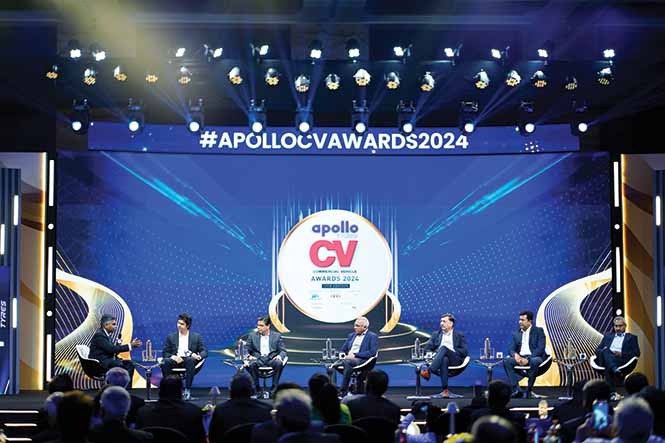
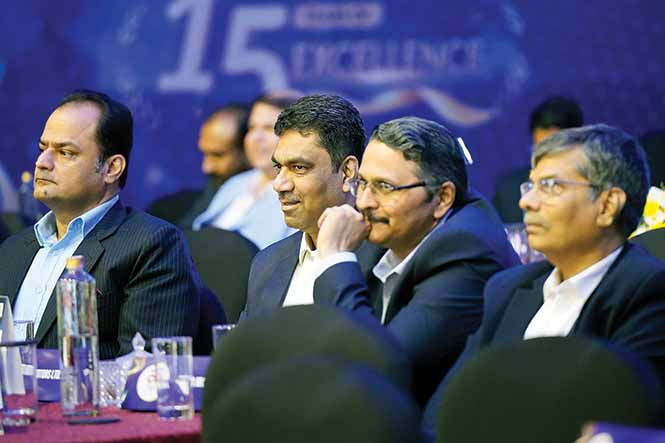




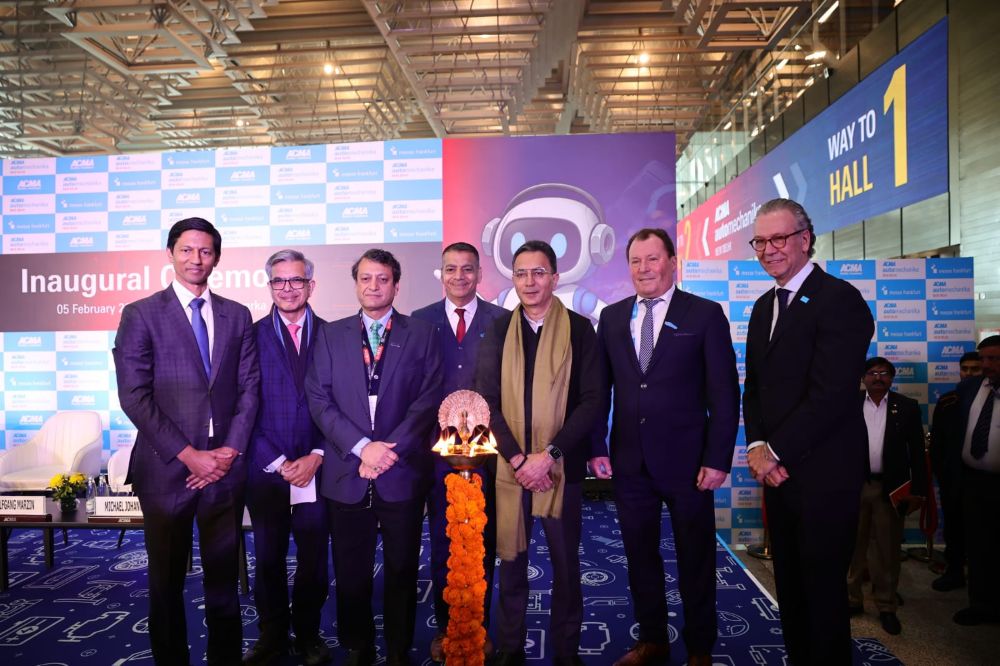
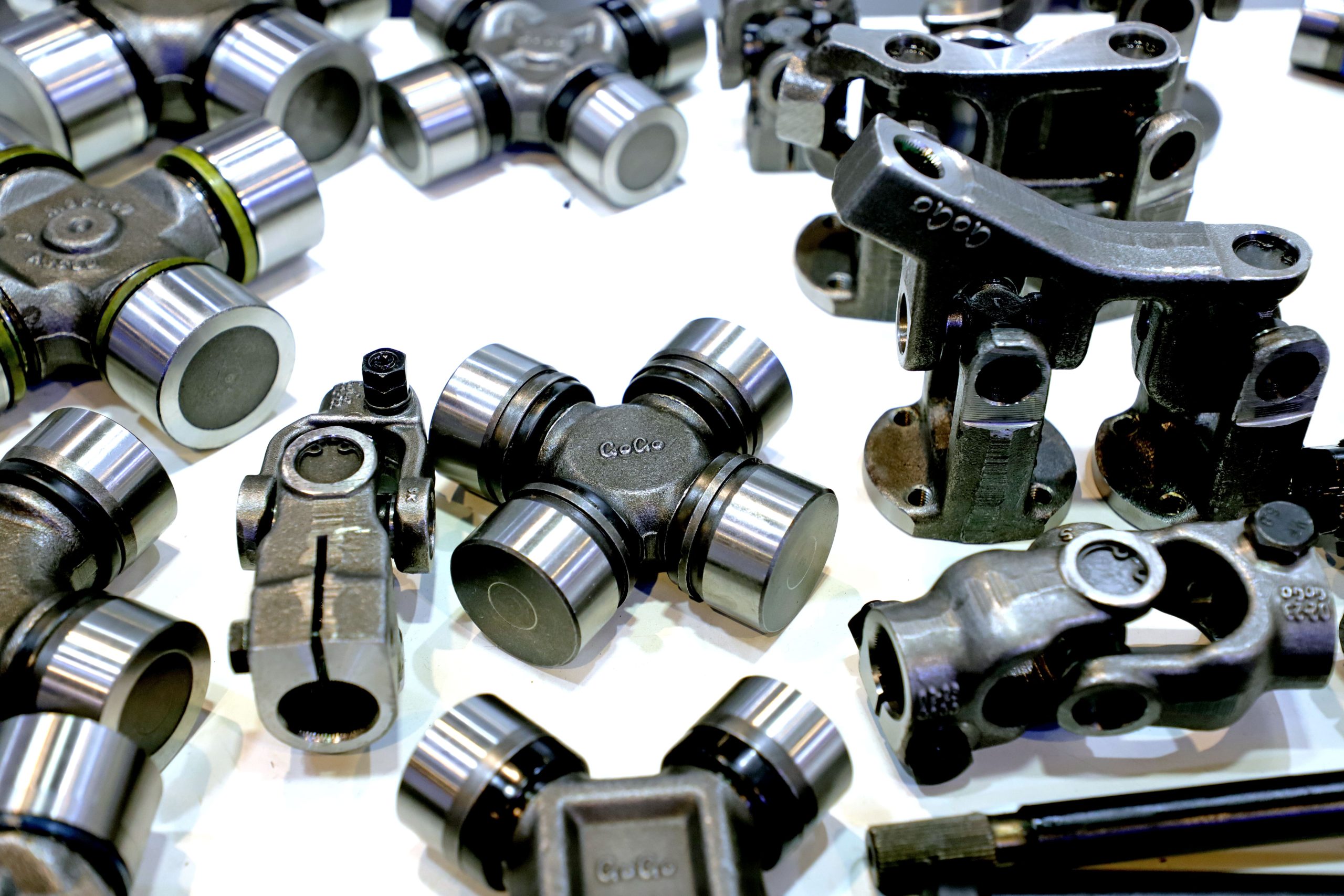
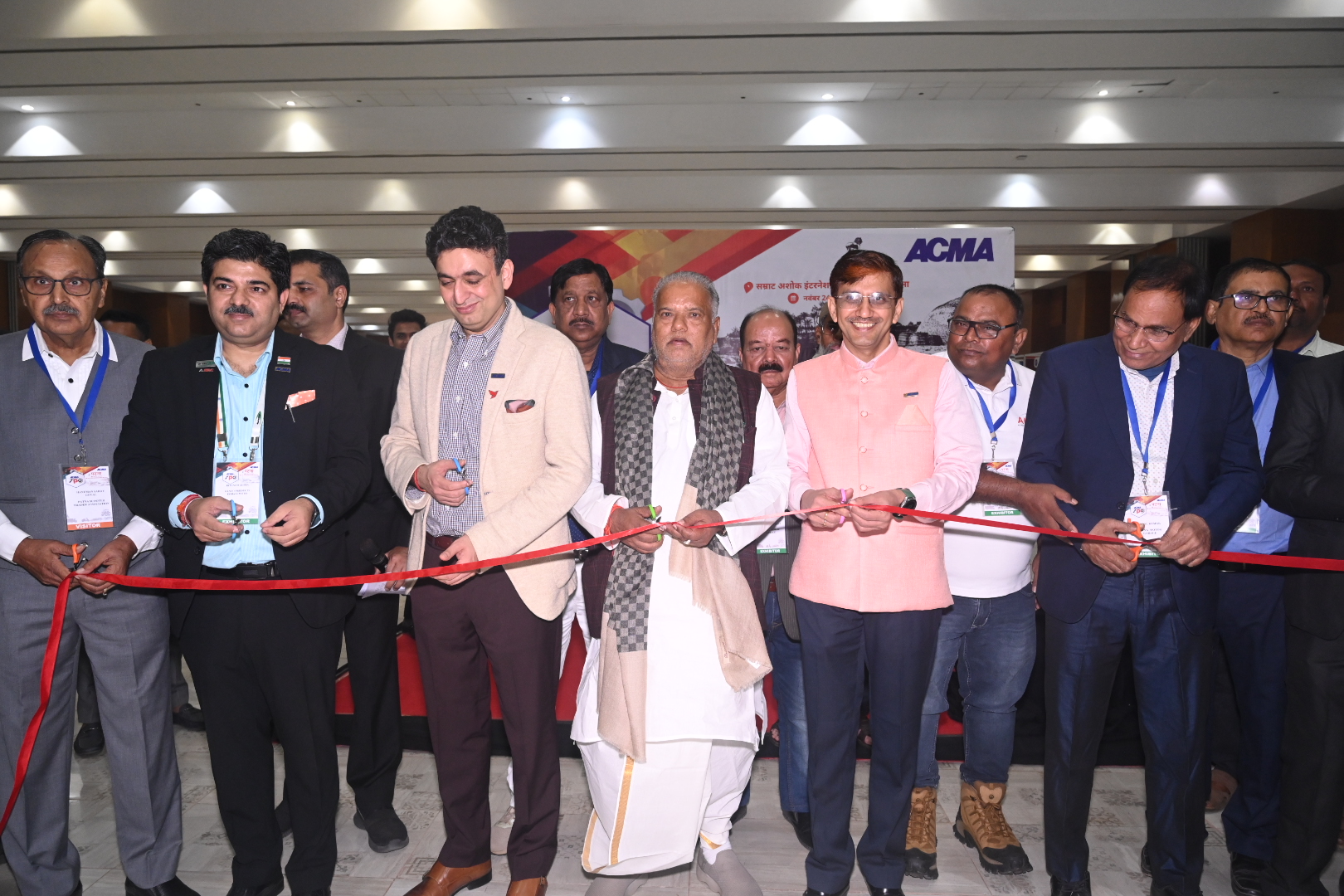
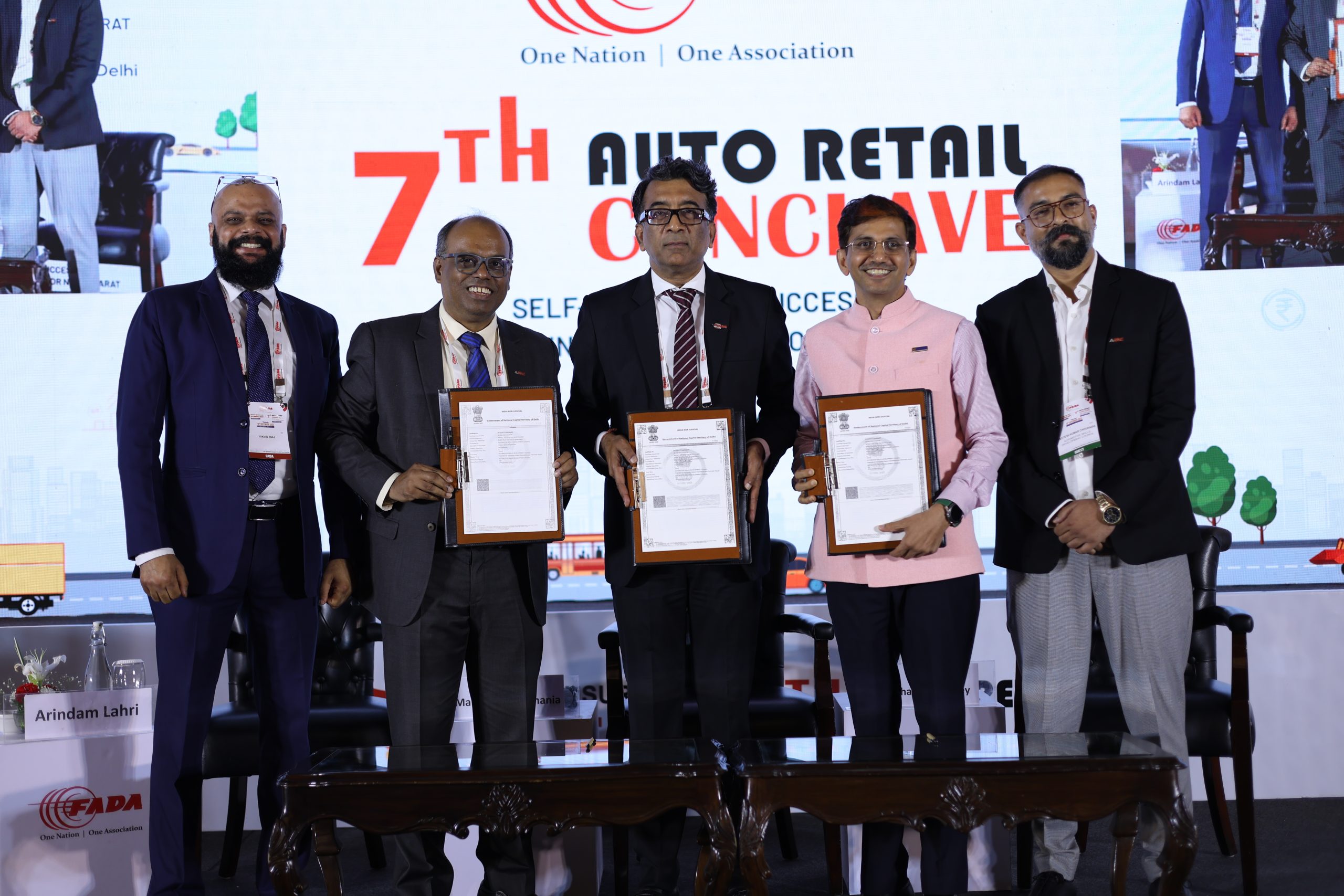
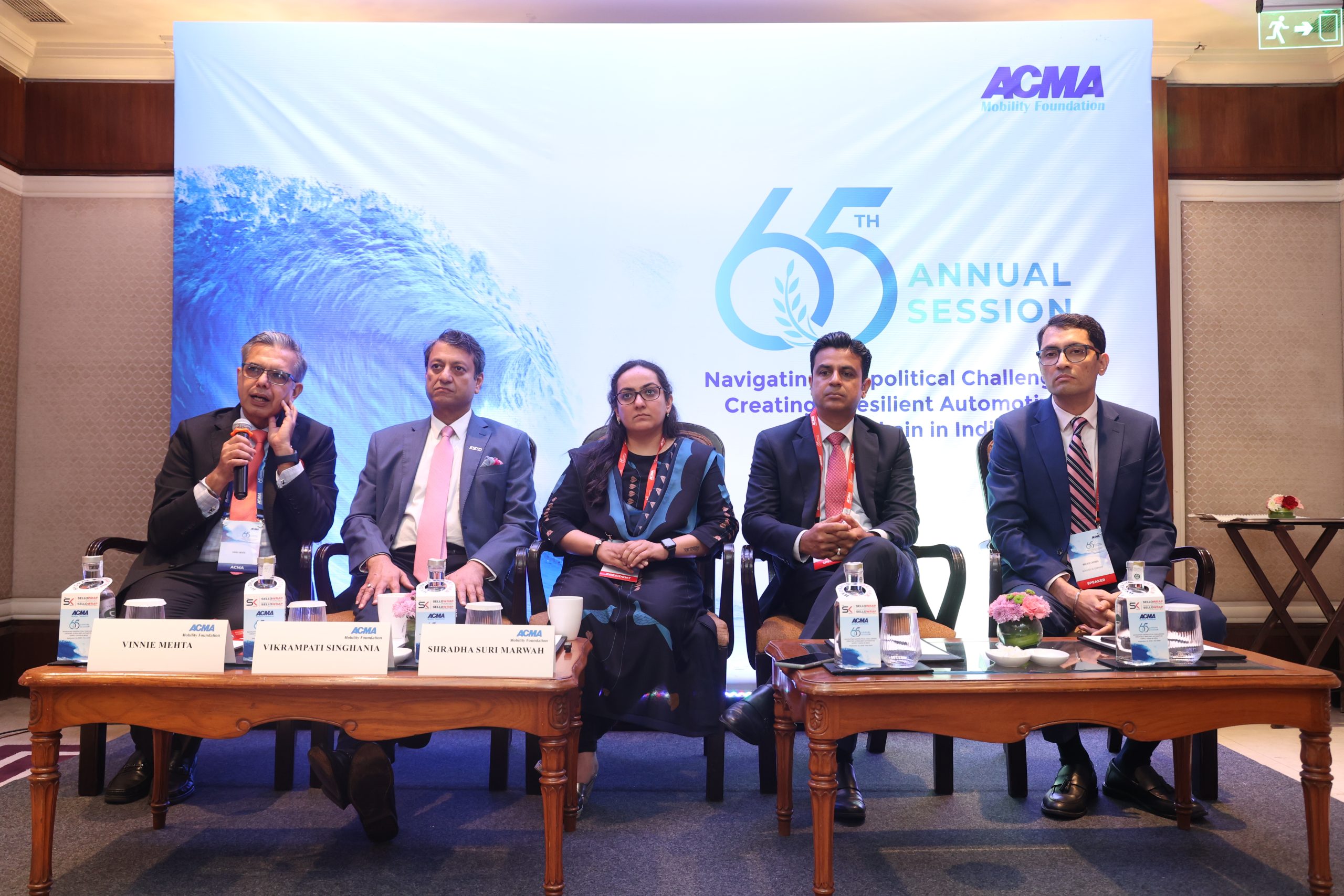
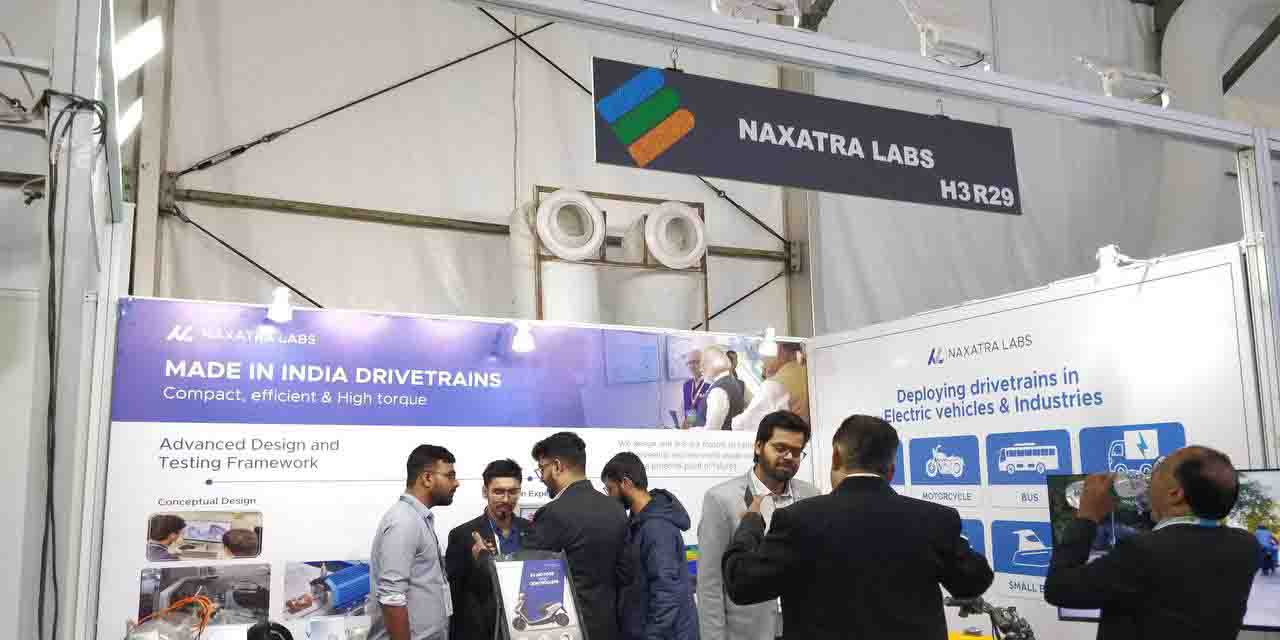
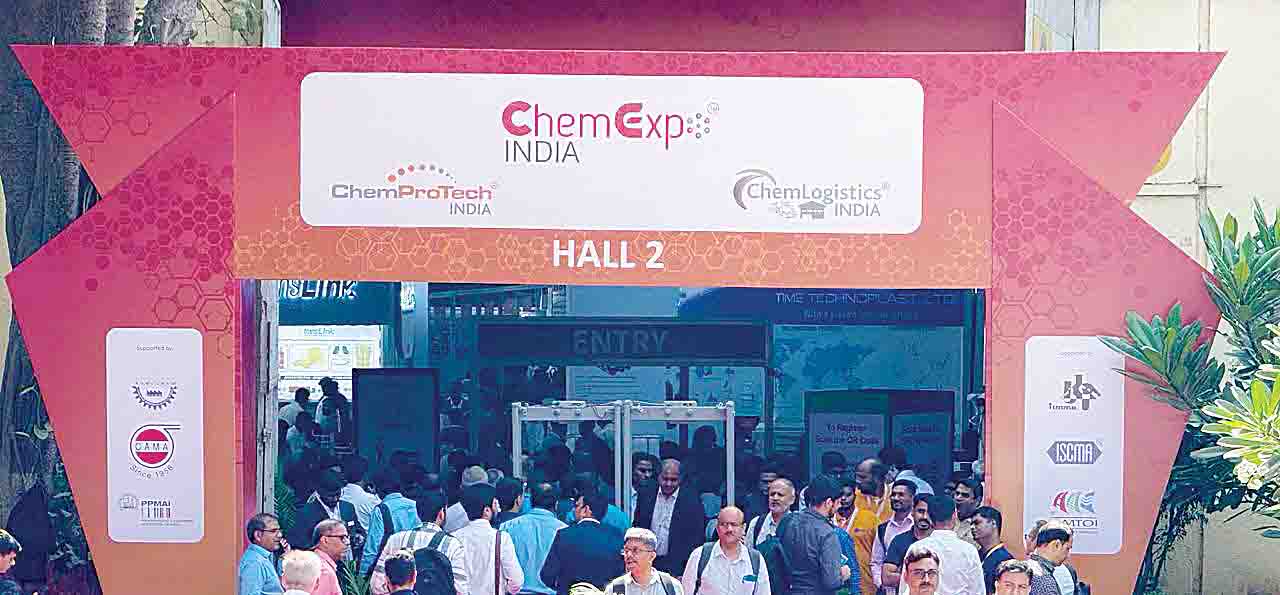
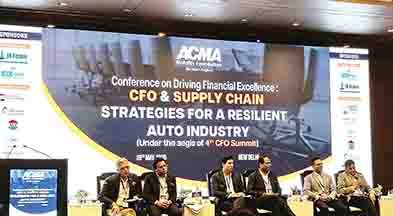

Leave a Reply